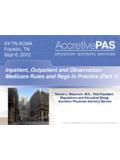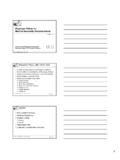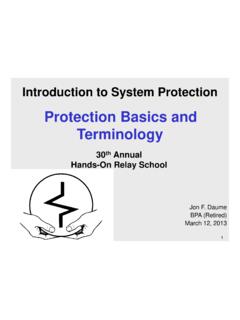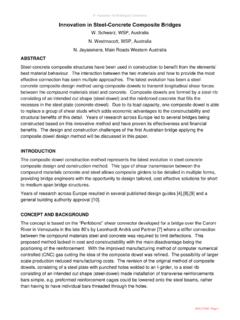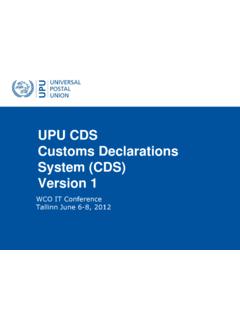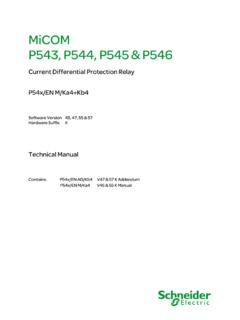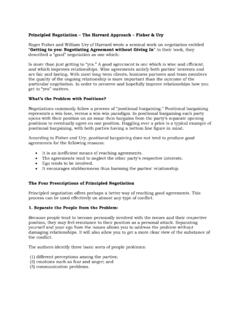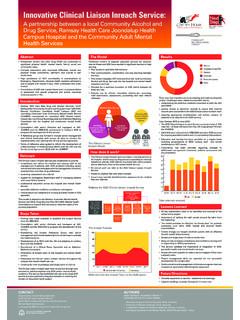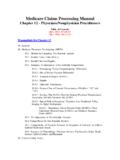Transcription of Inpatient, Outpatient and Observation: Medicare Rules …
1 1 inpatient , Outpatient and observation : Medicare Rules and Regs in Practice (Part 1)KY-TN ACMAF ranklin, TNSept 6, 2012 Confidential and Proprietary. Any use or disclosure to non-clients is not J. Meyerson, , Vice President,Regulations and Education GroupAccretive Physician Advisory Service RAC Regions2 Medicare Requires Screening of Admissions ..screening criteria must by the UM staff to screen The criteria used should screen both severity of illness (condition) and intensity of service ()y(treatment). Cases that fail the criteria [for admission] should be referred to physicians for Hospital Payment Monitoring Program Workbook3 Confidential and Proprietary2 Condition of Participation:UR Plan Required The hospital must have in effect a utilization review (UR) plan that provides for review of services furnished by the institution and by members of the medical staffto patients entitled to benefits under the Medicare and Medicaid programs.
2 Code of Federal Regulations [Title 42, Volume 3] Sec. Condition of Participation: Utilization review4 Confidential and ProprietaryCondition of Participation:Review of Admissions(c) Standard: Scope and frequency of review. (1)The UR plan must provide for review for Medicare and Medicaid patients with respect to the medical necessity of (i) Admissions to the institution; (ii) The duration of stays; and (iii) Professional services furnished, including drugs and biological(s).(2)Review of admissions may be performed before, at, or after hospital of Federal Regulations] [Title 42, Volume 3] Sec. Conditions of Participation: Utilization review5 Confidential and ProprietaryMedicare Expects Reviewersto Use a Screening Tool The reviewer shall use a screening tool[InterQual, Milliman] as part of their medical review of acute IPPS [ inpatient Prospective Payment System, , acute care hospital] and LTCH [long term care hospital] claims.
3 CMS does not require that you use a specific criteria set. qy p In all cases, in addition to screening instruments, the reviewer applies his/her own clinical judgment to make a medical review determination based on the documentation in the medical record. Medicare Program Integrity Manual, Chapter 6, Section and Proprietary3 InterQual CriteriaInterQual: Objective screening criteria used by case managers to screen pts for admission. Finding = SI: severity of illness. How sick is the pt? Treatment = IS: intensity of service. What is ordered? Must meet bothSI and IS criteria to meet criteria for admission. Will qualify for observation if inpatient criteria not met and observation criteriaare met. Refer to physician advisor (PA) for secondary review when admission criteria not met PA uses physician judgment and applies Medicare guidelines for admission, not InterQual and ProprietaryMilliman Care Guidelines Review indications for admission or observation Refer for physician advisor secondary review when uncertain or criteria not met8 Confidential and ProprietaryInterQual , Milliman.
4 Two Step ProcessAdmission review is often a two step by case manager against objective review by physician to determine medical necessity for admission for those cases that fail to pass admission screeningadmission to perform effective secondary review results admission hospital observation of compliance with Medicare admission rules9 Confidential and Proprietary4 Medicare inpatient Criteria An inpatient is a person who has been admitted to a hospital for bed occupancy for purposes of receiving inpatient hospital services. Generally, a patient is considered an inpatient if formally admitted as inpatient with the expectationformally admitted as inpatient with the expectation that he or she will remain at least overnight and occupy a The physician or other practitioner responsible for the care of the patient at the hospital is also responsible for deciding whether the patient should be admitted as an inpatient .
5 Medicare Benefit Policy Manual Chapter 110 Confidential and ProprietaryMedicare inpatient Criteria Physicians should use a 24-hour period as a benchmark, , they should order admission for patients who are expectedto need hospital care for 24 hours or more, and treat other patients on ttitbi [BUT]an Outpatient basis. [BUT] not covered or non-covered solely on the basis of the length of time the patient actuallyspends in the hospital. Medicare Benefit Policy Manual Chapter 111 Confidential and ProprietaryPhysician s Decision to Admit The decision to admit a patient is a complex medical judgment which can be made only after the physician has considered a number of factors: The patient s medical history and the severity of the signs and s mptoms hich impact the medical needssigns and symptoms which impact the medical needs of the patient and influence the expected LOS.
6 The medical predictability of something adverse happening to the patient. Medicare Benefit Policy Manual Chapter 112 Confidential and Proprietary5 Consider Only Information Available at Time of Admission ..[Reviewers should] consider only the medical evidence which was available to the physician at the time an admission decision had to be made, and do not take into account other information (l)hihbilbll( , test results) which became available only after admission. Medicare Intermediary Manual, Paragraph 310113 Confidential and ProprietaryConsider Only Information Available at Time of AdmissionIn making decisions, Quality Improvement Organizations (QIOs) consider onlythe medical evidence which was available to the physician at the time an admission decision had to be made.
7 They do not take into account other information which became available only after yadmission, except in cases where considering the post admission information would supporta finding that an admission was medically Benefit Policy Manual, Chapter 1 inpatient Services Covered Under Part A14 Confidential and ProprietaryAdmission andObservation Orders The physician s order must clearly define and state the level of care the patient requires. Suggested wording that may be used is admission to inpatient status or place patient into observation status into observation Benefit Policy Manual Chapter 115 Confidential and Proprietary6 Admission andObservation Orders CMS updated .. by removing references to "admission" and " observation status" in relation to Outpatient observation services and direct referrals for observation services.
8 These terms may have been confusing to hospitalsmay have been confusing to hospitals. The term "admission" is typically used to denote an inpatient admission and inpatient hospital services. Pub. 100-02, Medicare Benefit Policy Manual, Chapter 6, section and ProprietaryObservation Defined by Medicare observation is a well defined set of specific, clinically appropriate services, which include ongoing short-term treatment, assessment and reassessment that are furnished while a decision is b iddih hiillibeing made regarding whether patients will require further treatment as hospital inpatients or if they are able to be discharged from the hospital. Medicare Benefit Policy Manual, Pub 100-04, Chapter 4, Section 29017 Confidential and ProprietaryObservation Defined by Medicare observation is an active treatment to determine if a patient s condition is going to require that he or she be admitted as an inpatient or if it resolves itself so that the patient may be discharged.
9 The Federal Register, 11/30/01, pg 5988118 Confidential and Proprietary7 observation Order Required observation services are covered only when provided by the order of a physician or another individual authorized by State licensure law and hospital staff bylaws to admit patients to the hospital or to order Outpatient observation services must also be reasonable and necessary to be covered by Medicare . Medicare Claims Processing Manual, Chapter 4, 19 Confidential and ProprietaryObservation Not a Substitute for Admission Outpatient observation services are not to be used as a substitute for medically necessary inpatient admissions. LCD for Outpatient observation Services (L13798)First Coast Service Options, Inc. (FL)20 Confidential and ProprietaryObservation Not for Convenience Outpatient observation services are not to be used for the convenienceof the hospital, its physicians, patients, or patient s families, or while awaiting placement to another facility.
10 LCD for Outpatient observation Services (L13798) First Coast Service Options, Inc. ( Medicare FL)21 Confidential and Proprietary8 Ambiguity of Intensity of Setting An inpatient admission is not covered when the care can be provided in a less intensive setting without significantly and [directly] threatening the patient's safety or health. In many institutions there is no difference between the actual medical services provided in inpatient and outpatientactual medical services provided in inpatient and Outpatient observation settings; in those cases the designation still serves to assign patients to an appropriate billing category. WPS Medicare , LCD L3222222 Confidential and ProprietaryWhen observation Begins observation time begins at the clock time documented in the patient s medical record, which coincides with the time that observation care is initiated in accordance with a physician s order.

